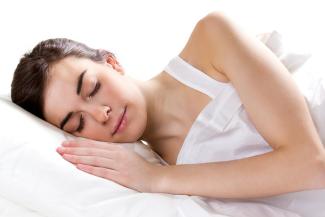
Melatonin is a hormone produced by the pineal gland in the brain, and it plays a crucial role in regulating the sleep-wake cycle. Its primary function is to signal to the body when it's time to sleep. Melatonin is typically released in the evening as it gets darker, and its levels peak during the nighttime hours. As daylight breaks, melatonin levels decrease, signaling wakefulness.
Melatonin is also available as a dietary supplement in the form of tablets or drops. It is commonly used to alleviate sleep disturbances such as insomnia, jet lag (resulting from travel across time zones), shift work, and other sleep-related issues. Here are some key points about melatonin and its use as a sleep aid:
- Regulation of Sleep Cycle: Melatonin, when taken as a dietary supplement, can help regulate the sleep-wake cycle. It's typically recommended to be taken about 30 minutes to an hour before the desired bedtime.
- Insomnia: Melatonin is commonly used to relieve temporary insomnia. If you're having trouble falling asleep due to stress, jet lag, or other temporary causes, melatonin can help you fall asleep more quickly.
- Jet Lag: Melatonin can be useful in managing jet lag that occurs when traveling across different time zones. Using melatonin, you can attempt to synchronize your sleep cycle with the time difference at your destination.
- Shift Work: People working in shifts and dealing with inconsistencies in their sleep cycle can use melatonin to ease the transition between different work hours.
- Long-Term Use: Melatonin is typically safe for short-term use but may not be suitable for prolonged use without consulting a healthcare professional. Long-term use may affect the body's natural production of melatonin.
- Persistent Sleep Problems: Melatonin may not be effective for all sleep issues. If you have chronic insomnia or other serious sleep problems, it's advisable to consult with a sleep specialist who can offer better guidance and therapies.
- Possible Side Effects: Melatonin can have some mild side effects, including headaches, dizziness, and digestive issues. It's important to consult a physician if you have health conditions or are taking other dietary supplements or medications, as melatonin may affect their effectiveness.
In summary, it's advisable to consult with your physician before using melatonin, especially if you have any health concerns or are taking medications. Melatonin is not a miracle cure for sleep, but it can be helpful in certain situations to improve sleep quality and reduce sleep-related issues.






